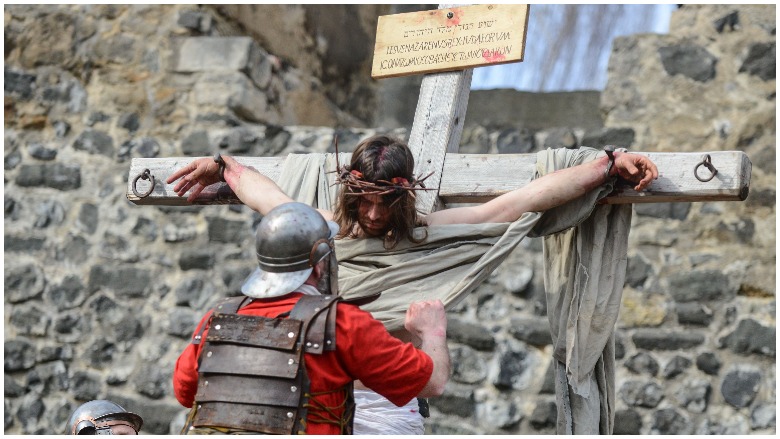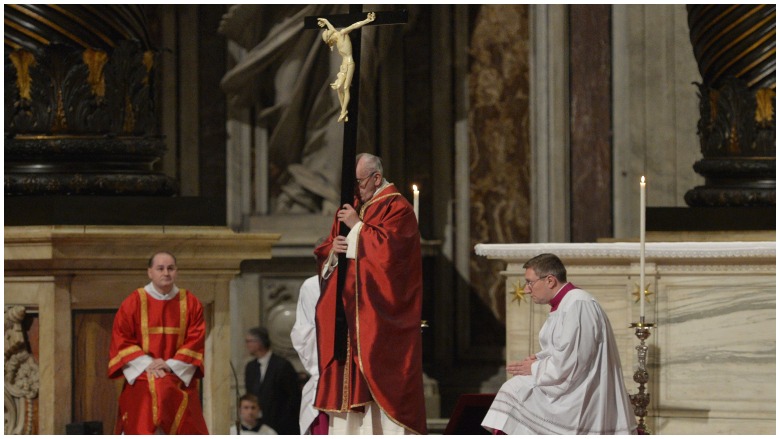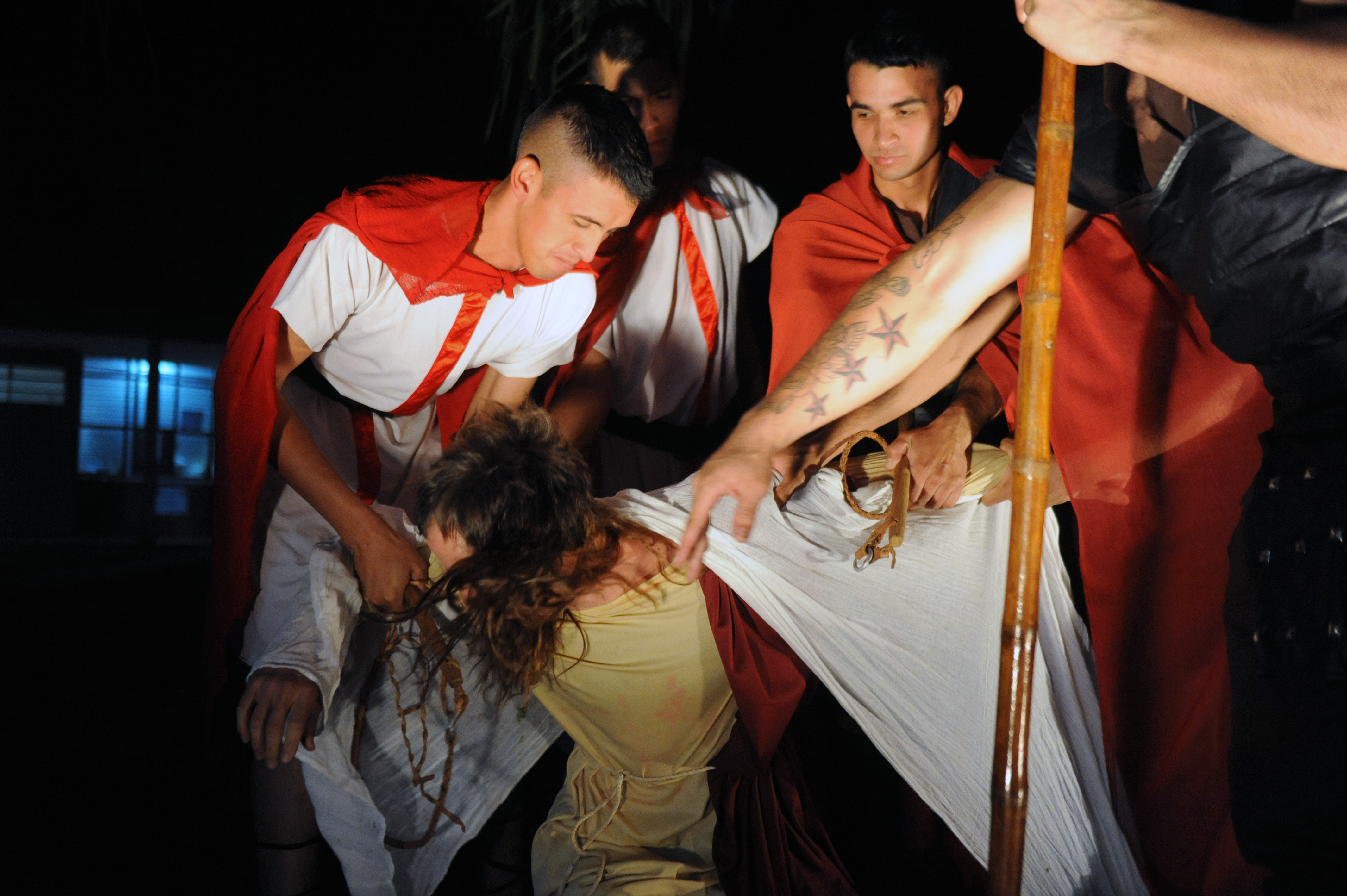
Good Friday is one of the days on the Christian calendar when Catholics are specifically obligated to abstain from eating meat. It’s the day Catholics commemorate Jesus’ suffering and death on the cross.
Giving up meat is considered a communal form of penance to honor Jesus’ sacrifice, Bishop Robert J. Brennan of the Diocese of Columbus in Ohio explained to Heavy. “We call the giving up of meat ‘Penitential abstinence.’ It is a reminder of the need for all of us to repent.”
Bishop Brennan added that Holy Thursday is traditionally the day people end their Lenten sacrifices. But the entire Holy Week “is also a time of penance and most people consider it an extension of Lent.”
Here’s what you need to know:
Catholics Used to Abstain From Meat on Fridays All Year But the Church Relaxed the Rules in the 1960s

Getty Pope Francis carries a cross during the Celebration of the Lord’s Passion on Good Friday at St Peter’s basilica, on March 25, 2016.
The Catholic Church used to mandate that parishioners refrain from eating meat on Fridays all year long. Friday has long been considered a “special day of penitential observance,” even outside of the Lenten season, because that is the day Jesus sacrificed himself to atone for humanity’s sins, the U.S. Conference of Catholic Bishops explains.
But in 1966, the Church relaxed the meat-eating rules. Fridays are no less significant during the rest of the year. But the Church ruled that Catholics could choose to honor Jesus’ sacrifice in other ways on Fridays, such as doing volunteer work, visiting the sick or teaching younger generations about the faith.
The rule change was formally codified in 1983 when Pope John Paul II added it to a revised version of the “Code of Canon Law,” as the Archdiocese of Saint Paul & Minneapolis explains. He mandated that “abstinence is to be observed on Ash Wednesday and on the Friday of the Passion and Death of our Lord Jesus Christ.” American bishops expanded the rule to include all Fridays during Lent.
The USCCB explained in a “Pastoral Statement on Penance and Abstinence” in 1983 that the change was made in part because changing “economic, dietary, and social” circumstances “have made some of our people feel that the renunciation of the eating of meat is not always and for everyone the most effective means of practicing penance. Meat was once an exceptional form of food; now it is commonplace.”
The statement continues, “Friday should be in each week something of what Lent is in the entire year. For this reason we urge all to prepare for that weekly Easter that comes with each Sunday by freely making of every Friday a day of self-denial and mortification in prayerful remembrance of the passion of Jesus Christ.”
Catholics Are Allowed to Eat Fish on Good Friday

Getty Military cadets take part in a representation of Jesus’ arrest, before his crucifixion and resurrection during Holy Week on March 28, 2013 in Asuncion, Paraguay.
Catholics are not required to eat fish on Fridays. But fish and other seafood is allowed because it is not considered flesh meat. The U.S. Conference of Catholic Bishops explains that abstinence laws apply to animals that live on land, like chickens, cows and pigs.
However, food that includes meat juices, such as broth or sauces, are allowed. Other items that come from animals, like milk, eggs and cheese are also allowed because those do not include meat.
The Church classifies fish as a “different category of animal. Salt and freshwater species of fish, amphibians, reptiles, (cold-blooded animals) and shellfish are permitted.”
The Archdiocese of Saint Paul & Minneapolis explains on its website that one of the theories as to why fish is allowed dates back to the earliest days of the Church. Centuries ago, flesh meat was considered more of an extravagance. People ate it only occasionally, typically during celebrations or holidays. Abstaining from meat was akin to giving up a special treat. Fish, on the other hand, was inexpensive and much more common.
But regardless of what’s on the menu, practicing Catholics over the age of 14 are also instructed to fast on Good Friday. The Catholic fast doesn’t involve giving up food all day, as the United States Conference of Catholic Bishops explains. Instead, Catholics are instructed to eat just one full meal and small snacks are also allowed. There is no restriction on liquids such as water.
READ NEXT: What Does Holy Thursday Mean for Catholics?